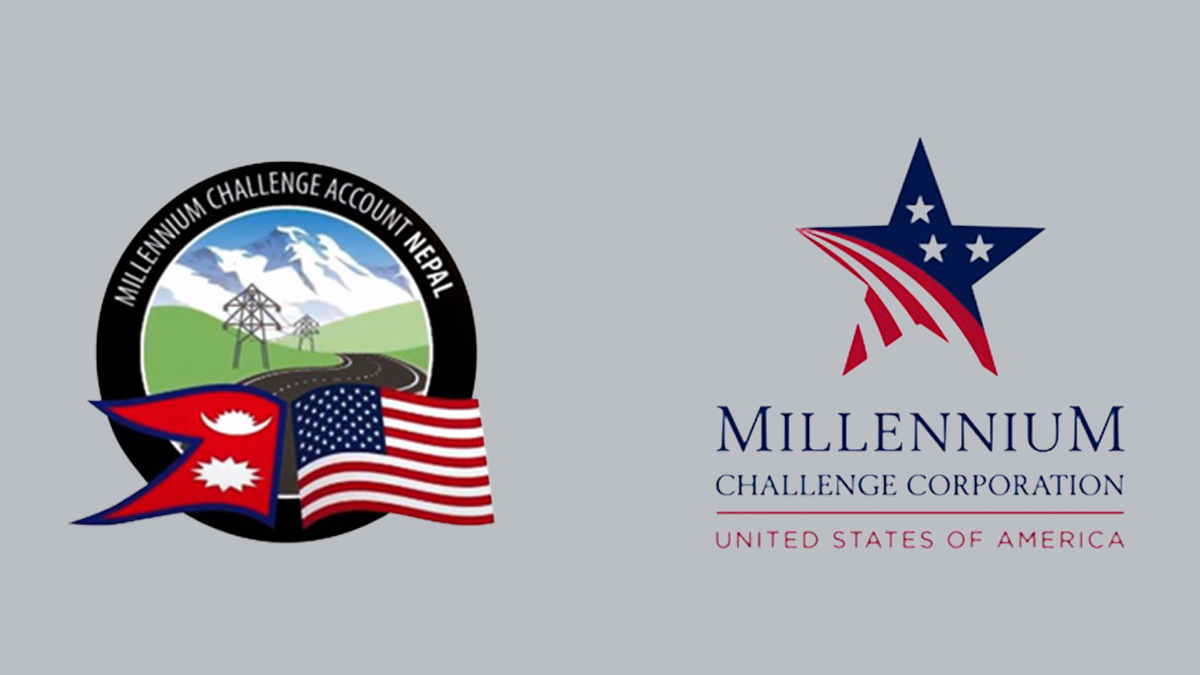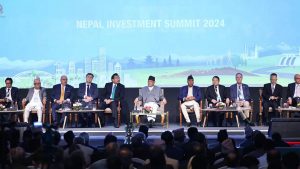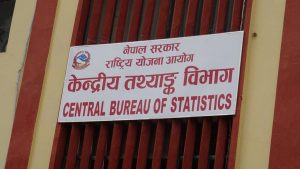
MCC: A Catalyst for Nepal’s Growth, Say Nepali Leaders

Prime Minister Pushpa Kamal Dahal of Nepal joined hands with Millennium Challenge Corporation (MCC) CEO Alice P Albright to celebrate the official launch of the MCC Nepal Compact in Kathmandu on Wednesday.
The event, hosted by MCA-Nepal (Millennium Challenge Account Nepal), marked the initiation of the implementation phase for the MCC Nepal Compact. This groundbreaking five-year program, which commenced on August 30, is a joint effort funded by the Nepal government and MCC.
The pivotal moment came when Finance Minister Prakash Sharan Mahat and MCC Vice President of Compact Operations Cameron Alford exchanged an Entry into Force (EIF) letter. The EIF is a crucial milestone for MCC compacts, signifying that all necessary conditions have been met, and preparations are in place to ensure the successful completion of compact projects within the stipulated five-year timeframe, as stated in a release by MCA-Nepal.
During her three-day official visit to Kathmandu, CEO Alice P Albright expressed her confidence in the project’s timely completion and conveyed her excitement about the widespread support it has garnered from various quarters.
Prime Minister Dahal, while extending his congratulations and best wishes, acknowledged that MCC-funded projects have opened new avenues for economic cooperation between Nepal and the United States. He also emphasized the potential for enhanced trade connectivity for Nepal throughout Asia and stressed that the effective implementation of compact projects would significantly contribute to Nepal’s economic development and poverty reduction. Additionally, he expressed gratitude to the U.S. government for its continued cooperation and assistance, as mentioned in the statement issued by MCA-Nepal.
Finance Minister Mahat highlighted that the MCC Nepal Compact’s projects are geared towards promoting Nepal’s economic growth and enhancing the lives of its citizens by improving infrastructure, including better roads and more reliable electricity.
In her remarks, MCC CEO Albright emphasized, “We worked with the Government of Nepal to set ambitious goals with this programme in order to achieve great things with the people of Nepal.” She also expressed the MCC’s commitment to being a reliable partner and its confidence in the leadership of the Government of Nepal and their implementing agency, MCA-Nepal, in overcoming any challenges that may arise during the program’s execution.
U.S. Ambassador to Nepal Dean R. Thompson underscored the importance of the MCC-Nepal Compact, noting it as another vital U.S. initiative supporting economic growth for the people of Nepal. He also highlighted that this project marks a significant milestone in the longstanding 76-year friendship between Nepal and the United States.
During her visit, Albright engaged with key government officials and stakeholders, participated in a tree-planting ceremony underscoring MCC’s commitment to environmental protection, and observed training sessions conducted by the Department of Roads. These sessions focused on equipping engineers with climate-smart, sustainable technology for building a safer transportation network that’s easier to maintain and eco-friendly.
Additionally, Albright met with inspirational women executives who shared their experiences, work, and aspirations for a more prosperous Nepal. The MCC Nepal Compact aims to enhance Nepal’s electricity reliability and create a more cost-effective transportation system. The Nepalese government and MCC formalized the agreement on September 14, 2017.














Comments